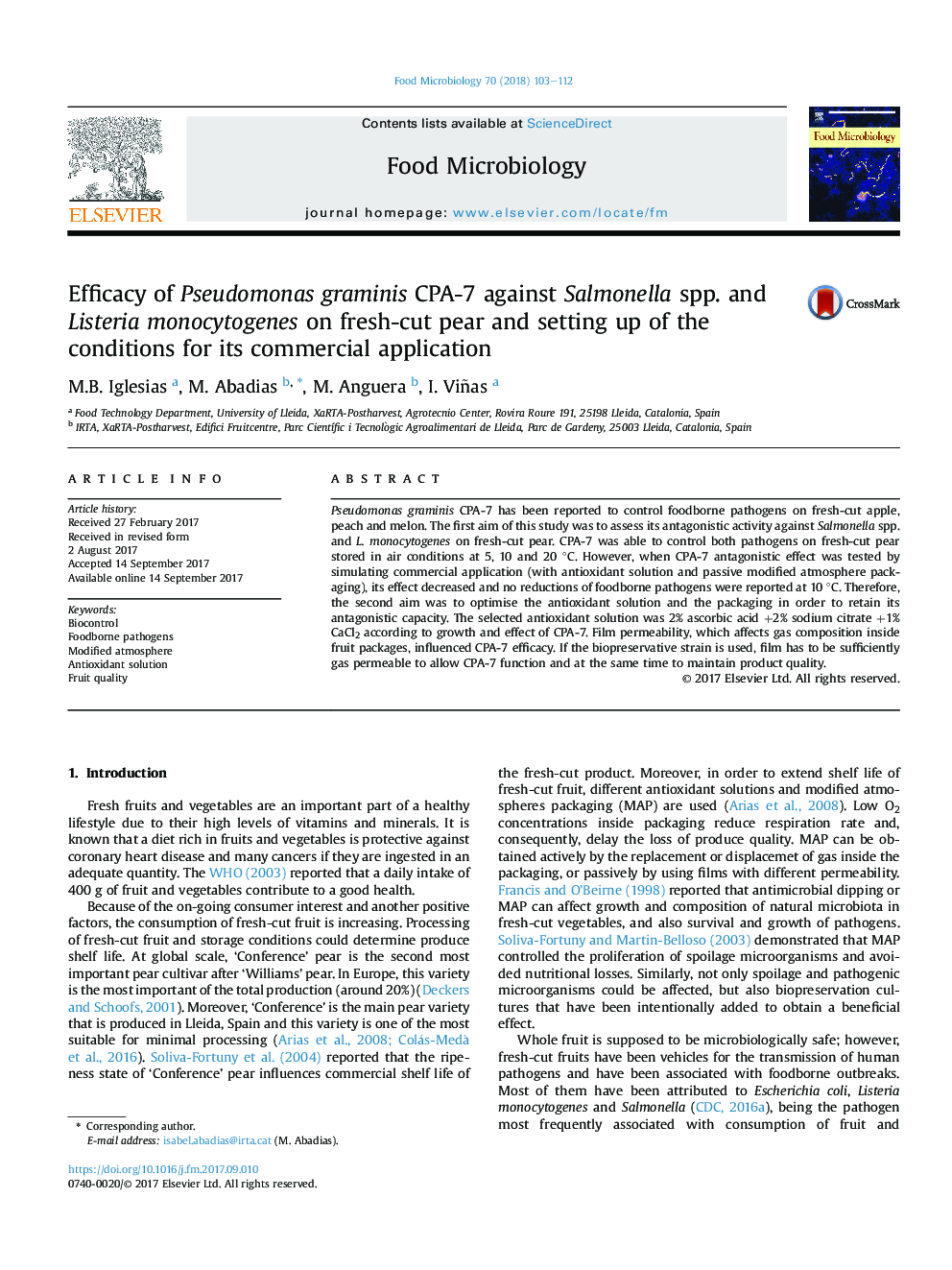| Article ID | Journal | Published Year | Pages | File Type |
|---|---|---|---|---|
| 5740011 | Food Microbiology | 2018 | 10 Pages |
â¢CPA-7 was able to control Salmonella and L. monocytogenes growth on fresh-cut pear in air conditions.â¢Commercial conditions reduced CPA-7 antagonistic activity on fresh-cut pear.â¢Some antioxidant treatments are adequate to use in combination with CPA-7.â¢Optimisation of packaging maintained the effect of CPA-7 against foodborne pathogens.
Pseudomonas graminis CPA-7 has been reported to control foodborne pathogens on fresh-cut apple, peach and melon. The first aim of this study was to assess its antagonistic activity against Salmonella spp. and L. monocytogenes on fresh-cut pear. CPA-7 was able to control both pathogens on fresh-cut pear stored in air conditions at 5, 10 and 20 °C. However, when CPA-7 antagonistic effect was tested by simulating commercial application (with antioxidant solution and passive modified atmosphere packaging), its effect decreased and no reductions of foodborne pathogens were reported at 10 °C. Therefore, the second aim was to optimise the antioxidant solution and the packaging in order to retain its antagonistic capacity. The selected antioxidant solution was 2% ascorbic acid +2% sodium citrate +1% CaCl2 according to growth and effect of CPA-7. Film permeability, which affects gas composition inside fruit packages, influenced CPA-7 efficacy. If the biopreservative strain is used, film has to be sufficiently gas permeable to allow CPA-7 function and at the same time to maintain product quality.
